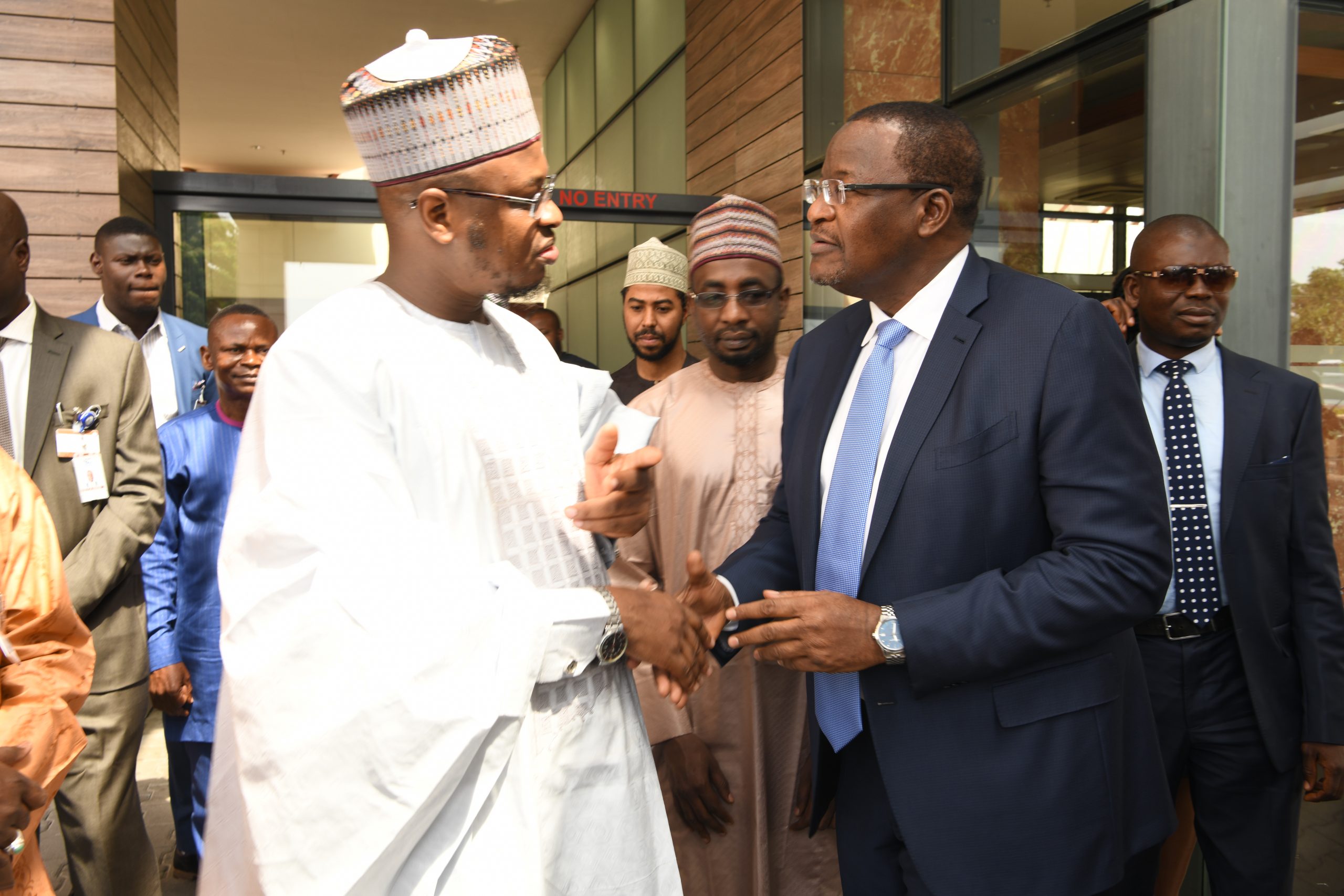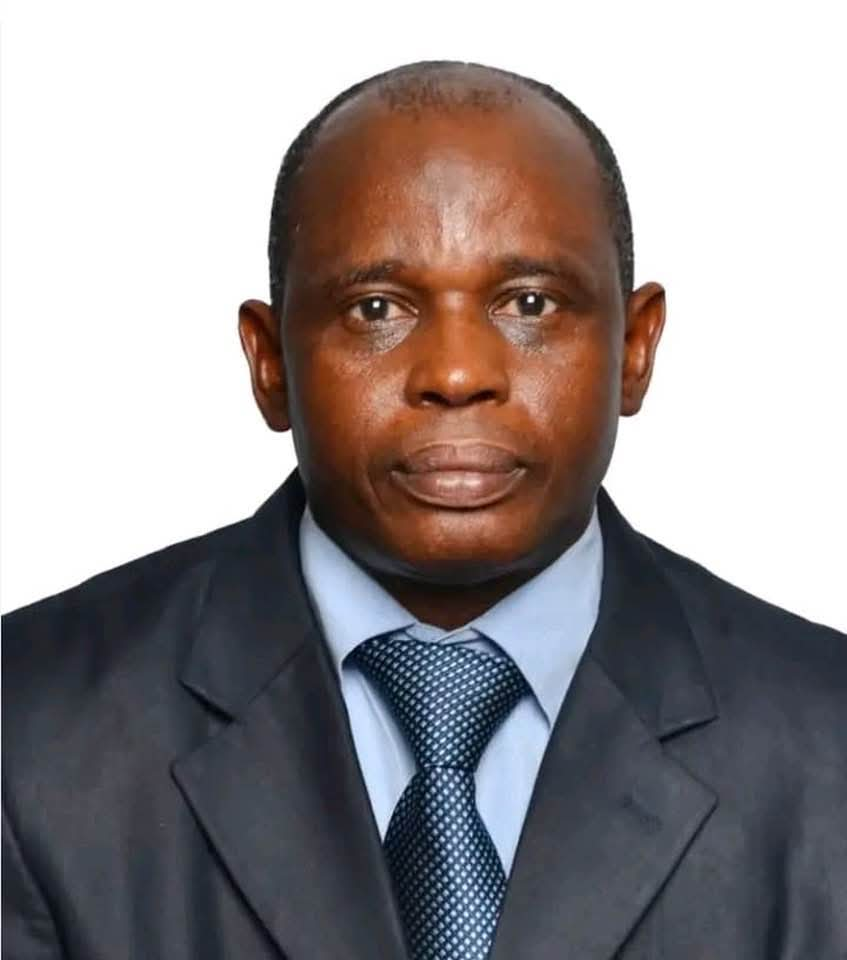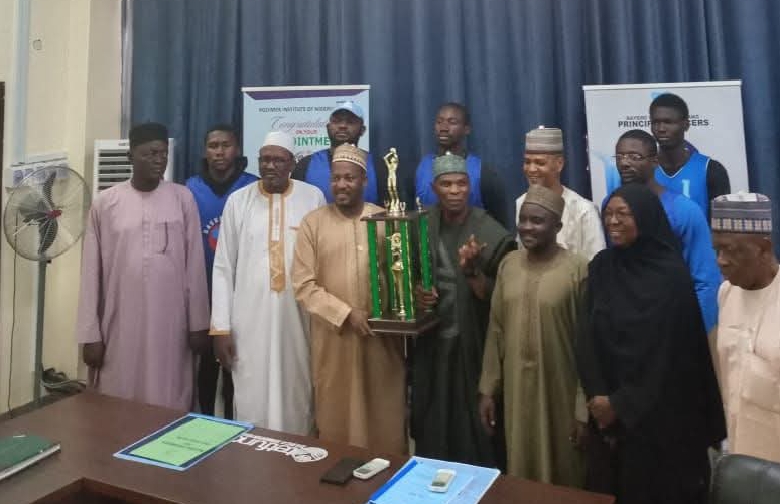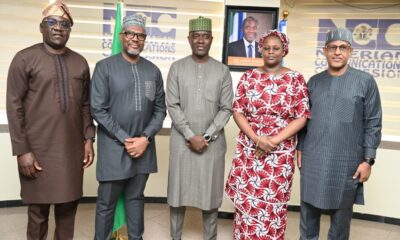Headlines
Pantami applauds NCC’s role in telecoms regulatory standards

Nasiru Yusuf
The Minister of Communications and Digital Economy, Dr Isa Ali Pantami, has commended the Nigerian Communications Commission (NCC) for spearheading regional and global initiatives on telecoms networks standardisation within the International Telecommunications Union (ITU) community.
Dr Pantami gave the commendation while delivering his welcome address at 7th Study Group 13 (SG 13), ongoing Regional Workshop for Africa being hosted by the NCC at the Transcorp Hilton, Abuja.
While addressing participants drawn from Nigeria and other African countries as well as officials of the ITU at the event, the minister said the NCC’s role in being at the forefront of driving digital revolution for Nigeria is well noted.
According to him, “I want to appreciate the efforts of the Nigerian Communications Commission (NCC) for representing the Federal Ministry of Communications and Digital Economy (FMoCDE) to coordinate these activities of the SG 13 of ITU in Nigeria.

“The effort is highly commendable. With all sense of responsibility as the Minister of FMoCDE, I commend your consistency in handling the activities of ITU and other study groups of the FMoCDE. Your efforts are most appreciated”.
Commenting on the theme of the event, Dr Pantami said standards are critical to the inter-operability of Information and Communication Technologies (ICTs).
He said the workshop is taking place at a time the Nigerian government, through the ministry, is making effort to reposition its focus and strategies on how to use new and emerging digital technologies to transform the socio-economic life and activities of the country.
Dr Pantami emphasised the need for Africa to position itself properly in order to be upbeat on the organising principles of developing appropriate standards for the future and next generation digital networks that support a digital economy ecosystem.
Earlier in his opening remarks, Prof. Umar Dambatta, Executive Vice Chairman (EVC), NCC, stated that discussions and solutions for future networks such as cloud computing, software defined networks and smart cities, cannot be understated.
“To achieve a resilient and robust future network, standards must be developed to accommodate the evolution of new and emerging technologies. The new frontier comes with great value and potentials for humanity and so, Nigeria and indeed, Africa cannot afford to be left behind,” Dambata explained.
Prof. Dambatta, while tasking participants to come up with far-reaching resolutions, said such “resolutions will hopefully play a pivotal role at the World Telecommunications Standardization Assembly (WTSA) coming up later in the year”.
He affirmed that all these developments will also play significant roles in achieving the new mandate for the digital economy.
The NCC Executive Vice Chairman therefore charged participants to drive collective interest and let such collective interest be their focal point of discussion, “so that we can have networks that can handle the peculiarities of our environment, as we drive towards development and integration of new and emerging technologies on our dear continent”.
On his part, the Chairman, ITU SG 13, Simeon Bagudu, said the Group was established in 2008 to mobilise effective participation of Africa in the area of ICT standardisation.
He enthused that the participation of Nigeria in the regional Group and in other ITU events and programmes has been ‘very remarkable.’
The ITU operates through its three sectors namely the Radiocommunications Sector (ITU-R), Standardisation Sector (ITU-T), and Development Sector (ITU-D).
The Standardisation Sector through its study groups and World Telecommunications Standardisation Assembly (WTSA) uses experts from around the world to prepare, deliberate and develop international standards known as ITU-Recommendations, which act as defining elements in the global infrastructure of information and communication technologies (ICTs).
The work of Africa Regional Groups in each of the Study Groups of ITU-T, such as the SG 13, comes under the ITU-T Sector. The SG 13 was established in 2008 to bridge the standardisation gap among African countries.
The four-day programme, focused on the theme: ‘Standardisation of Future Networks Towards Building a Better Connected Africa’, has a dual structure: a workshop by the SG 13 for Africa which commenced from 2-4, February 2020; and another special meeting by the Group scheduled for 5-6, February, 2020.

Headlines
Gov. Yusuf mourns former Kano finance commissioner, Prof. Dandago

Nasiru Yusuf Ibrahim
Governor Abba Kabir Yusuf has expressed deep sorrow over the death of former Kano State Commissioner of Finance and renowned academic, Professor Kabiru Isa Dandago.

KANO FOCUS reports that the governor’s reaction was contained in a statement issued on Wednesday by his spokesperson, Sunusi Bature Dawakin Tofa, Director General, Media and Publicity, Government House, Kano.
Governor Yusuf described the late Prof. Dandago as a dedicated public servant and accomplished scholar whose contributions to education and governance left lasting footprints in Kano State.
He noted that the former finance commissioner served the state with integrity and commitment and was widely respected for his professionalism, humility and passion for knowledge.
According to the governor, Kano State has lost a valuable son whose experience and wisdom greatly enriched both public service and the academic community.
Governor Yusuf extended his heartfelt condolences to the family of the deceased, the academic community and the people of Kano State over what he described as an irreparable loss.
He prayed that Almighty Allah forgives the shortcomings of the late Prof. Dandago, grants him Aljannatul Firdaus and gives his family and loved ones the fortitude to bear the loss.

Headlines
GATCOSA President, Prof. Kabiru Isa Dandago is dead

Nasiru Yusuf Ibrahim
The National President of the Government Arabic Teachers College Gwale Old Students Association (GATCOSA), Professor Kabiru Isa Dandago, is dead.
KANO FOCUS reports that Prof. Dandago, a renowned Professor of Accountancy at Bayero University Kano, died on Wednesday evening. His passing has thrown the academic community and associates into mourning.
In a message shared on GATCOSA’s WhatsApp platform, a Director at the Kano State Ministry of Higher Education, Alhaji Nura Dandago, announced that the funeral prayer for the late professor would be held on Thursday at 9:00 a.m. at his residence in Rijiyar Zaki Quarters, Kano.

Until his death, Prof. Dandago served as the National President of GATCOSA and was widely respected for his contributions to education and public service. He previously served as Commissioner for Finance in Kano State during the administration of former Governor Abdullahi Umar Ganduje.
Just last Saturday, the late academic presented a paper on economic challenges in Northern Nigeria at a Ramadan Lecture organised by the Islamic Forum of Nigeria, where he spoke passionately about strategies for economic reform and regional development.
Colleagues and admirers described Prof. Dandago as a dedicated scholar and public servant who was deeply committed to building a prosperous and self-reliant nation. His death marks the end of a distinguished career in academia and public service.

Headlines
BUK clinches Northwest 3×3 basketball title at ABU Zaria

Nasiru Yusuf Ibrahim
The basketball team of Bayero University Kano (BUK) has emerged champions of the Northwest 3×3 Basketball Championship hosted by Ahmadu Bello University (ABU), Zaria.

KANO FOCUS reports that the victorious team presented the championship trophy to the Vice-Chancellor, Prof. Haruna Musa, following their impressive performance at the tournament, which featured six universities from across Northern Nigeria.
BUK went unbeaten throughout the competition, winning all six matches and sealing the title with a thrilling 20–18 victory over the host institution, ABU Zaria, in the final.
In the group stage, BUK recorded a 10–0 win against Northwest University, Kano, and defeated the Air Force Institute of Technology 33–20. The team also edged the Federal University of Education, Kano, 11–9, before securing another dominant 10–0 victory over the Federal University of Transportation, Daura. They capped their remarkable run with the narrow 20–18 triumph in the final.
The victory marks BUK’s second championship title in the history of the competition, reinforcing the university’s growing reputation in collegiate sports.
Receiving the team, the Vice-Chancellor congratulated the athletes for bringing pride to the institution and urged them to sustain and surpass their current achievements. He reaffirmed the management’s commitment to strengthening sports development in the university and pledged continued institutional and individual support for the players’ sporting careers.
The presentation ceremony concluded with the formal handover of the trophy and cash rewards to the athletes in recognition of their discipline, teamwork and excellence.























